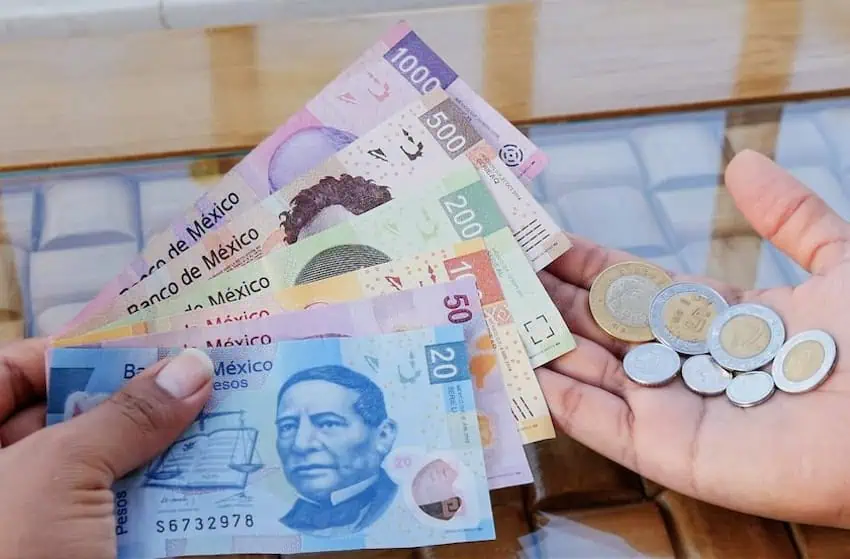I think many people would be surprised to learn that Mexico’s current minimum wage is around US $13 per day in most parts of the country.
Perhaps more surprising is that this amount represents a significant increase over the past several years. Former president AMLO made a step change in Mexico’s minimum wage a signature initiative of his administration, more than doubling the minimum wage from what it was at the start of his six-year term in 2018. A recent report indicated that Mexico showed the highest increases in its minimum wage of all of the 38 OECD countries since 2020.
Likewise, it is estimated that the number of Mexicans living in poverty declined by nearly nine million since 2020.
Just recently, newly elected President Claudia Sheinbaum announced that further minimum wage increases will be an important part of her platform, with a goal of increasing it by an average of 12% per year during her six-year term. She has set a goal for the minimum wage to be 10,000 pesos per month (approximately $500 USD / month) by the end of her administration.
In addition, new legislation has recently been proposed that would ensure that the minimum wage increase each year would always exceed the level of inflation.

For those living in the United States, I understand why there is a natural cynicism around the concept of a minimum wage.
The federal minimum wage in the United States is still only $7.25/hour. Political gridlock has kept the minimum wage at this rate since 2009 — despite significant inflation since then.
As a result, many cities and states in the U.S. have enacted their own laws regarding minimum wage, so the federal rate has become far less relevant. In fact, it is estimated that just 1.3% of all hourly workers, the lowest percentage on record, actually earn the minimum wage.
In Mexico however, things are starkly different.
It is estimated that nearly 40% of the workforce makes the minimum wage or less throughout the country. I will repeat that sentence again as I think it is so important: nearly 40% of the Mexican workforce makes less than $13/day.
Perhaps this statistic sheds more light on why our team at MND is so passionate about our role in helping to shape the narrative on Mexico, and to help encourage more investment and tourism to the country. There is still a very, very long way to go to reduce the levels of working poor that many foreigners don’t see beyond their all-inclusive hotel, business compound or Expat neighborhood.

I have spoken to many businesspeople in Mexico who have expressed cynicism toward the minimum wage as well, but I don’t think their arguments hold weight.
One argument that I have heard is that “the minimum wage is irrelevant and really just a number that the local unions use as a reference point to negotiate their contracts.” Others argue that so many workers in Mexico are part of the informal economy that the minimum wage increases would not benefit them. This in fact is not true and research from several recent studies by the ENOE (National Survey of Employment) and the Coneval (National Board of Social Policy) have shown that as the formal economy minimum wage increases, it puts pressure on the informal economy wages at an even faster rate.
Another more common argument I often hear is that “Mexican workers will not be competitive with other countries (mainly China) if the minimum wage is increased.” I think that this argument is outdated for a number of reasons:
- China’s cost of labor has risen significantly over the past decade. Most studies now show that Chinese labor is actually more expensive than Mexican labor. Even when taking into account labor productivity, Mexican labor is still less expensive than Chinese labor.
- In addition to labor costs, companies are now considering many other factors such as supply chain risk, proximity to the U.S. market, shipping costs and timing, etc. that help Mexico and Mexican workers make a stronger case for higher wages than before.
- Mexico and Mexican labor are increasingly “moving up the value chain” and moving beyond basic low-skilled jobs to ones that incorporate automation, technology, AI and increased training. This improves productivity and allows companies in Mexico to be more efficient, more competitive and improve pay for their employees.
Running a business and hiring staff is not easy. A careful balance is needed of training and motivating employees, while staying competitive to stay in business. Not getting this right at the individual business level can be disastrous, as I wrote about here.
Not getting it right at the country level can also be a problem. I have previously written about how this can cause a “middle-income trap” that slows down a country’s progression.
Putting aside politics, I think Mexico is on the right path to getting this balance right.
On one hand, the federal government is pushing the minimum wage up from what most certainly is an unlivable level. On the other hand, the private sector is making significant investments in training and automation to ensure that, even with the higher wages, Mexican labor remains cost/productivity competitive.
The balance is not easy to achieve, but what I see at this point indicates that Mexico is on the right path of continuing to attract investment while improving the standard of living of its workers.
Travis Bembenek is the CEO of Mexico News Daily and has been living, working or playing in Mexico for over 27 years.
